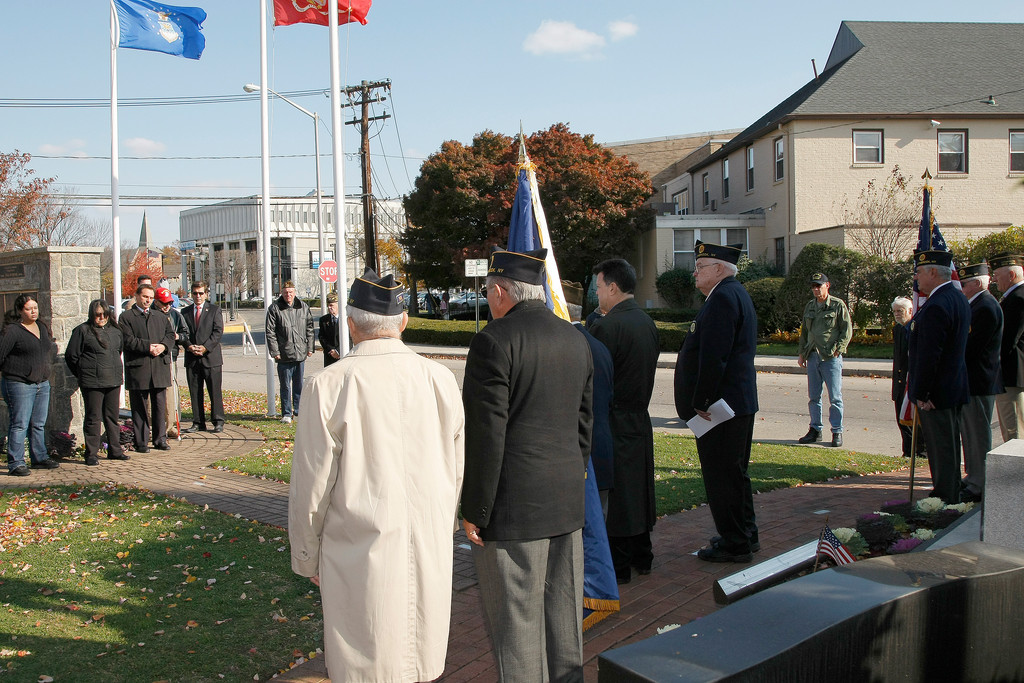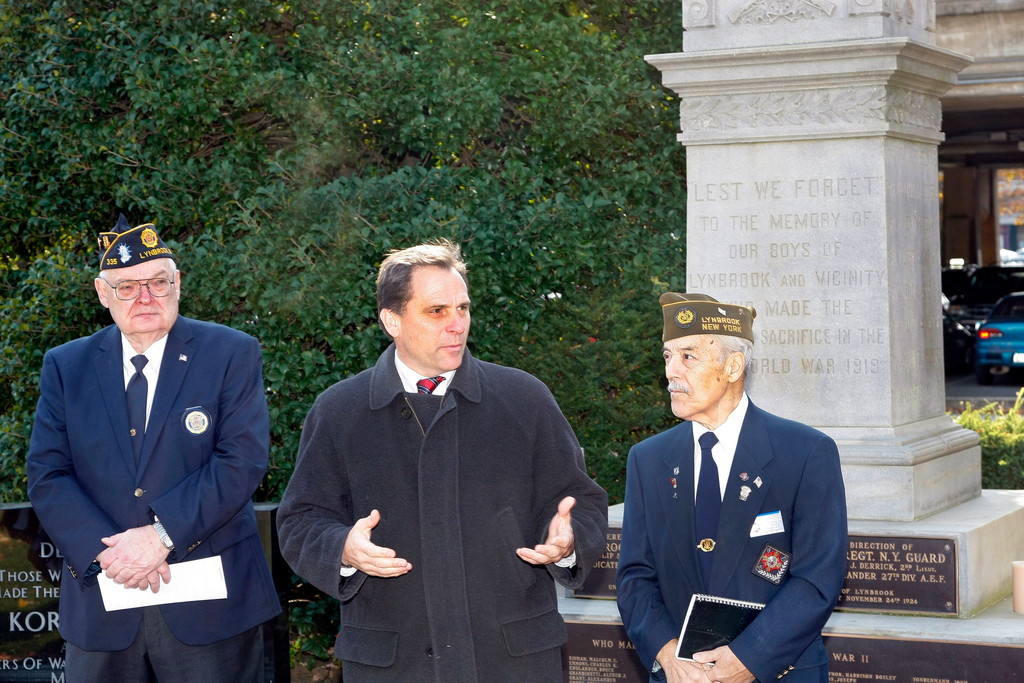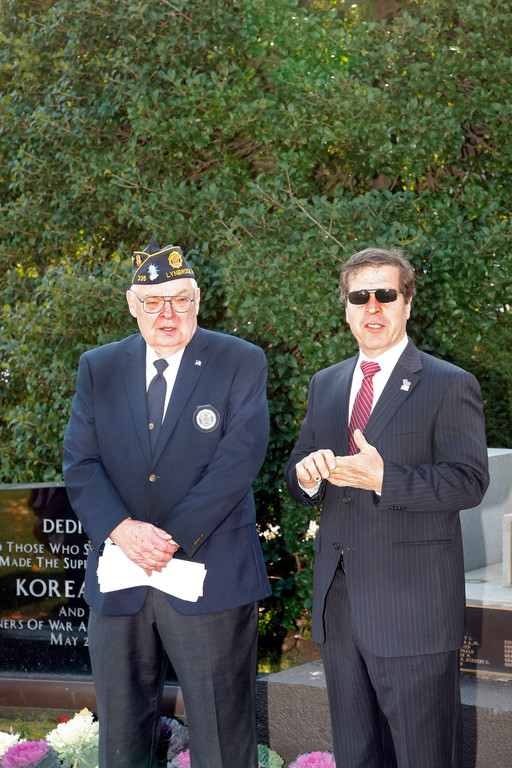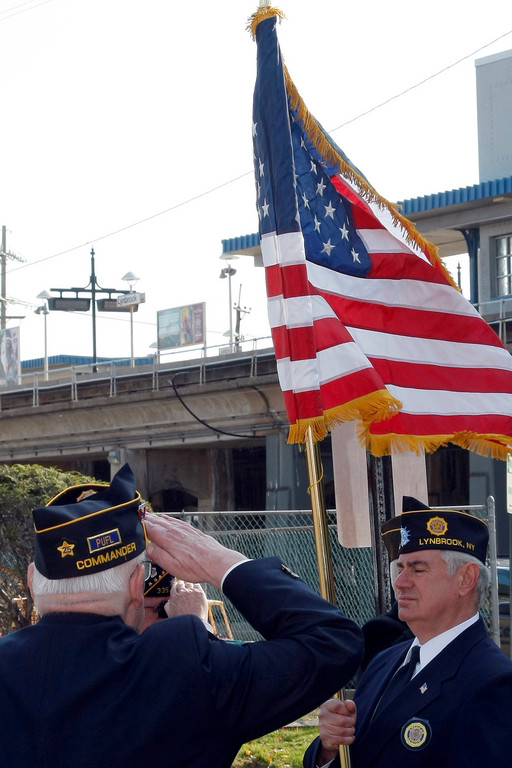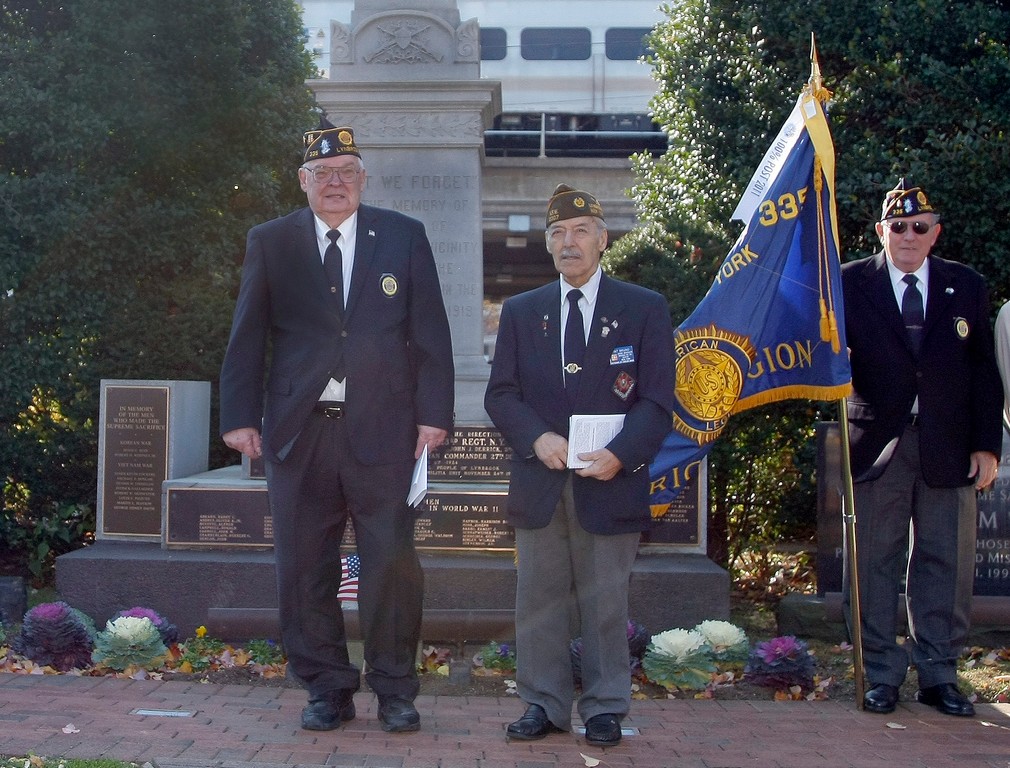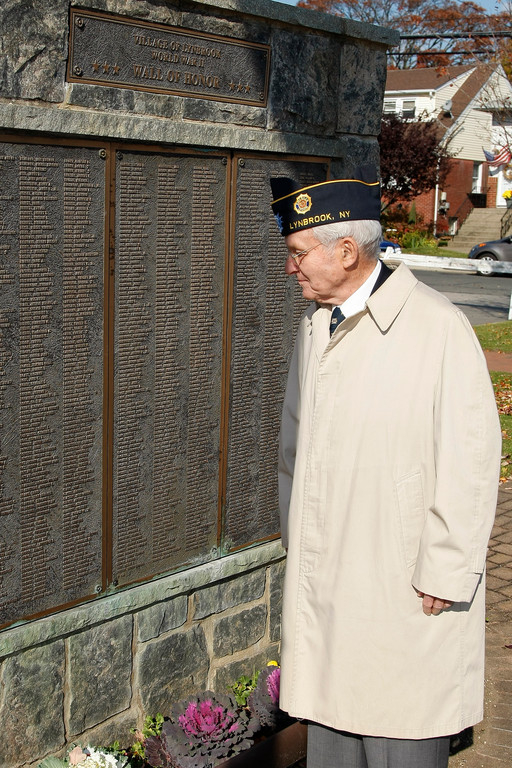A salute to Lynbrook's veterans
Veteran's Day ceremonies held in the village
During the Korean War era, Henry Speicher had spent time as an army corporal. He remembers leaving a Brooklyn army base to travel to places like Africa, but being passed over for a trip to fight in Korea. “I was very lucky and thankful to not have to go,” he said. He also recalled training in Austria in the 1950’s. After coming home, he worked as a maintenance machinist, responsible for repairs and preventive maintenance of newspaper production equipment, the 50-year resident added.
At Lynbrook’ Veteran’s Day ceremony on Nov. 11, Speicher read a poem, “The Bravest Man I know,” by Amanda Whitney, a student at Columbia Junior High School in Tacoma, WA, to the crowd at the village’s Doughboy monument near the train station at Saperstein Plaza. The poem captured the day’s sentiment, talking about the “bravest man” as a one who risks his life for others, just as veterans have done.
Just before 11 a.m., the Marine Corps marched and saluted, apart of the brief ceremony hosted by the Veterans of Foreign Wars Post 2307, American Legion Post 335 and the Marine Veterans of Lynbrook. Mayor Bill Hendrick, Deputy Mayor Alan Beach and trustee Hilary Becker offered a few words about the significance of this day, and honoring veterans.
“I think what [Veterans’ Day] means is renewed pride in men and women who served this country,” Hendrick said following the ceremony. “In my lifetime, I am glad to see that this pride is back.”
Patrick Cardone, Lynbrook VFW commander, offered a few words to the community in his invitation to the Veteran’s day ceremony. “Please never stop remembering the veterans of our community,” he said. “As veterans, it is expected of use to spearhead, support and be there for our veterans. But it means so much more to a veteran when we see it from other aspects of the community.”
Jack Barlow, another veteran and adjutant for the American Legion, was happy to see the pride during the ceremony. He had become a sergeant in Korea, apart of the Air Force in 1951-52. Korea had nothing, including no heat in the inhabitant’s homes there at that time, he recalled. They would have to create fires in their backyards, heat rocks, and throw them under their beds for warmth, he said.
It was bitter cold, Barlow added, and the summers were not hot. But he wanted to help. “I was happy to be there to fight for freedom,” he said. Life after Korea included working on Wall Street for a financial services company, H.G. Wellington & Co., Inc. Though he went on to success, he recognizes that he was a survivor, like several other veterans. “I made it through a year,” he said. “I was lucky.”

